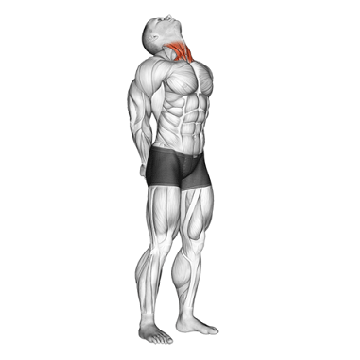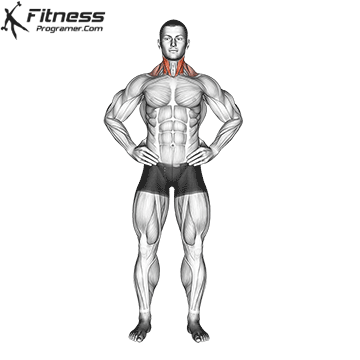What are the cracks in the neck?
A crack in the neck refers to an audible pop or cracking sound that occurs when you turn, twist, or operate the neck. This sound often results Cavitationa process in which gas bubbles (mainly nitrogen and carbon dioxide) bubble in the synovial fluid of the joint collapse or burst as pressure changes in the joint capsule. It’s similar to the sound you hear when you break a knuckle, Self-manipulation It is often done to relieve tension and stiffness in the cervical spine.
Why is cracked neck a habit?
Many people develop habitual neck cracking behavior as a response such as:
- Perceived tension or stiffness On the neck and upper spine.
- Psychological reinforcement From a sense of temporary relief after a crack.
- Positional imbalance Because of sedentary behavior, desk work, or poor ergonomics.
- Stress and anxietywhich can lead to increased muscle tone and forced development or “release” the neck.
Although occasional neck cracks are often benign, repeat operations can be obsessive, especially in individuals experiencing chronic discomfort and reduced range of motion.
Are there any benefits to cracking neck?
Some people report subjective benefits from occasional neck cracks, including:
- Temporary relief From tightness and rigidity.
- Feelings of Improved mobility or flexibility.
- Reducing stress or mental tensionespecially with those who associate “cracks” with relaxation.
However, these are important Temporary and Anecdotes. Clinical research shows that audible pops do not necessarily indicate success or therapeutic adjustments, and excessive cracks can mask underlying biomechanical problems.
The harm of cracked neck
Occasionally self-induced neck cracking is not inherently dangerous; Habitual or powerful neck manipulation You can have health risks:
1. Collaborative instability
- Over time, it will crack repeatedly Stretch ligaments Around the cervical vertebrae, it leads to potentially instability or instability of the joints.
2. Increased risk of injury
- Excessive force or improper cracking of the neck can lead to soft tissue, nerves, or Blood vessels It is rare, such as vertebral arteries stroke.
3. Masking the underlying problem
- If you may depend on cracks, proper assessment and treatment of the problem may be delayed Cervical Disc Herniasfacet joint dysfunction, or neural collision.
4. Muscle imbalance
- Constant operation is The root causeweakness and poor posture.
How to stop the cracked neck habit
If you want to stop with a habitual crack around your neck, consider the following strategies:
- Posture correction: Focus on the right ergonomics, especially if you are spending a lot of time. A balanced head and neck position reduces the urge to self-manipulate.
- Physical Therapy: Work with licensed physiotherapists who can assess and provide cervical biomechanics Manual therapy, Dry needlesor mobilization It will be tailored to your needs.
- Mindfulness Techniques: Use relaxation and breathing exercises to manage stress-related tensions that often lead to cracked necks.
- Chiropractic or osteopathic care: If specialized spinal adjustment is required, it should be performed by a trained clinician, not by self-manipulation.
- Strengthening and stretching exercises: engage in daily targeting Deep neck flexors, Trapeziusand Shoulder girdle To restore muscle balance. If you spend a long time at your office desk, these are 10 minute office exercise It may benefit you.


Frequently Asked Questions about Neck Cracks
Q: Is the neck the same as chiropractic adjustments?
A: no. Both may involve joint cavitation, but chiropractic adjustments are performed by licensed practitioners who target specific joints and use controlled forces, but self-concepts are inaccurate and may target hypermobile segments.
Q: Can cracks in the neck cause arthritis?
A: The current study does not support the idea that neck cracks lead to arthritis. However, habitual manipulation can contribute to joint stimulation and wear over time.
Q: Should I see a doctor about a crack in my neck?
A: If there is a crack in the neck pain, Nervous, It’s tingling, headacheor Decreased mobilityit’s time to seek professional evaluation.
Q: Why does my neck break when I turn my neck?
A: That sound often comes from Gas bubble The joint fluid or tendon snaps into the bone structure. Painless and sometimes it is usually harmless.
Conclusion
Neck cracking is a common behavior that can result in short-term relief from stiffness, but it carries potential risks when performed habitually or forcefully. It is not inherently dangerous, but we want healthier alternatives through understanding the cause and postural correction, physical therapy and appropriate ergonomic practices. If you are worried about your neck or are experiencing chronic discomfort, consult a healthcare professional about a customized treatment plan.





